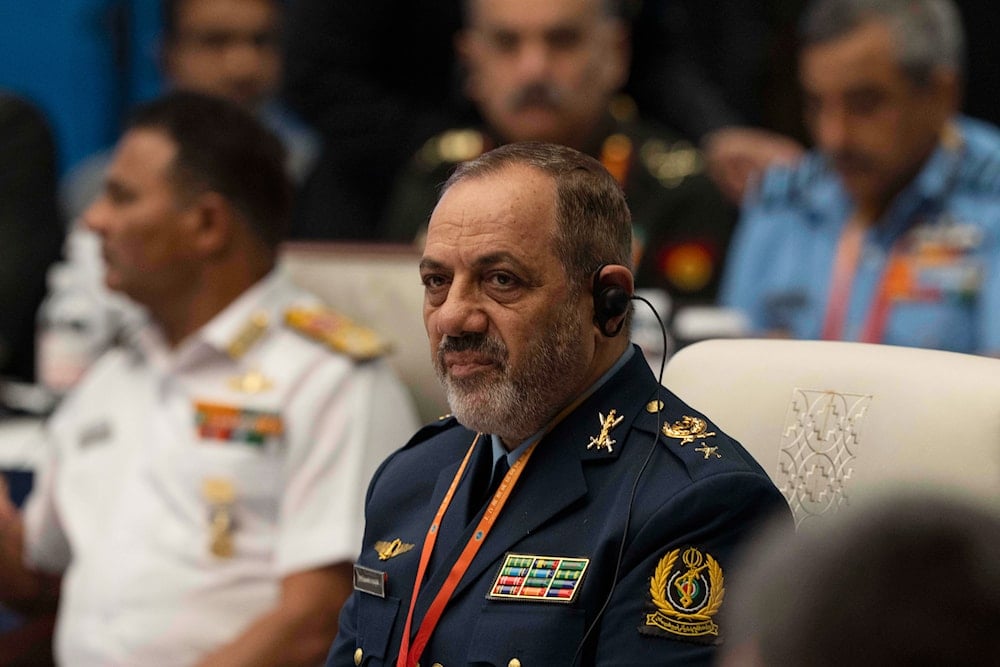Iran's defense minister warns of Tehran's yet unseen missiles
Iran’s Defense Minister Aziz Nasirzadeh says Tehran has developed advanced new missiles beyond those used in its recent strike, as top commanders vow a stronger response.
-

Iran Defense Minister Aziz Nasirzadeh attends the Defense Ministers' Meeting of the Shanghai Cooperation Organization Member States in Qingdao in eastern China's Shandong province on June 26, 2025. (AP Photo/Ng Han Guan)
Iranian Defense Minister Brigadier General Aziz Nasirzadeh confirmed that Tehran possesses advanced missile systems with capabilities far superior to those deployed in its recent response to US-"Israel" aggression.
Nasirzadeh explained that the missiles used in the earlier confrontation were produced years ago, while Iran’s defense industries have since developed newer and more effective generations, stressing that Iran will employ these advanced systems if the enemy undertakes any reckless actions.
He also emphasized that the latest confrontation was not solely with the Israeli entity, but also with US forces that provided direct logistical and intelligence support.
Highlighting Iran’s growing defense industry, Nasirzadeh noted that the country has made significant progress in upgrading its missile arsenal, ensuring readiness against any potential threats.
'Not in ceasefire'
In a related statement, Major General Yahya Rahim Safavi, senior advisor to the Supreme Leader of the Armed Forces, predicted the possibility of a new war, underscoring that Iran is not in a state of ceasefire but rather in a phase of "war".
"There is no protocol or agreement written between us and the Israelis, nor between us and the Americans," Safavi said, warning that any ceasefire could collapse at any moment.
The Pentagon recently announced plans to spend over $3.5 billion to replenish military inventories and sustain operations in West Asia, following "Israel's" recurrent operations, Bloomberg reported on Tuesday, adding that budget documents prepared through mid-May detail the costs associated with heightened military activity in the region, primarily stemming from the April 2024 Iranian retaliatory missile strike and its aftermath.
Labeled as "emergency budget requests," the allocations cover both advanced weaponry and routine logistical needs. These include replenishing interceptors, maintaining radar systems, refurbishing naval vessels, and transporting munitions.
The report details that a significant portion of the emergency funds is earmarked for restocking missile interceptors used during Iran's retaliatory Operation True Promise 1, including at least $1 billion directed toward RTX Corp.’s Standard Missile series, especially the advanced "SM-3 IB Threat Upgrade" variant.

 2 Min Read
2 Min Read










